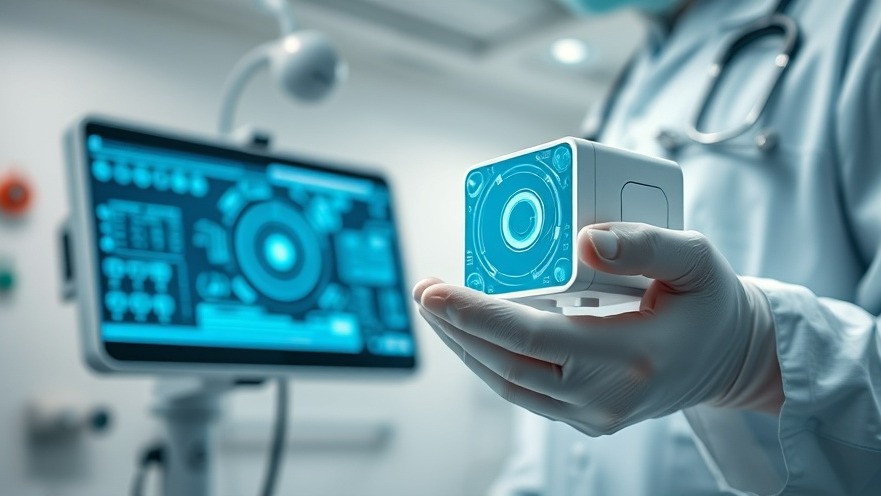
The Promise of AI in Health Care
In recent years, the intersection of artificial intelligence and healthcare technology has taken center stage. AI-driven smart devices promise a transformative approach to health care, particularly through advances in the Internet of Medical Things (IoMT). These innovations empower patients and practitioners alike by providing real-time data and insights that can change the way health care is delivered.
Understanding IoMT: A Game Changer for Patient Care
With the integration of IoMT, medical devices—ranging from smartwatches to sophisticated hospital monitors—are now interconnected, allowing for the seamless flow of health information. Professor Amir Gandomi emphasizes that this connectivity facilitates early disease detection and personalized treatment plans. The advanced capabilities of these devices can lead to proactive measures that ultimately save lives.
Real-World Applications of AI-Powered Devices
Consider a wearable heart monitor, which can alert users to irregular heartbeats in real time. This not only reduces the likelihood of severe complications but also encourages patients to manage their health daily. As noted in the groundbreaking research, AI-powered IoMT devices achieved a remarkable 99.84% accuracy in diagnosing heart disease from medical imaging. Such advancements herald a new era in diagnostic accuracy and patient engagement.
Challenges of Integrating AI into Healthcare
While the benefits are significant, challenges remain. Concerns about data security, device compatibility, and the need for robust health care infrastructure are paramount. As practitioners, understanding these challenges is crucial to successfully implementing AI technology in daily practice. The goal is to create a cohesive system that prioritizes patient safety and data integrity while leveraging technology for improved outcomes.
Impact on Patient Management and Hospital Efficiency
AI-driven smart devices are set to redefine how patients interact with healthcare systems. By facilitating continuous monitoring and providing timely interventions, these devices not only enhance patient management but also reduce the burden on hospitals. The result? Fewer hospital visits and improved patient outcomes, particularly for those with chronic conditions. This shift not only promises more personalized care but also a more efficient health care ecosystem.
Looking Forward: The Future of AI in Health Care
As we look to the future, the potential of AI in health care extends far beyond individual devices. It could reshape the landscape of medical practice into one that is more predictive rather than reactive. For instance, AI's involvement in pandemic response exemplifies how quickly it can adapt to emerging health challenges. The possibilities to enhance preventive care initiatives and health education are monumental.
Final Thoughts: Embracing Change in Health Care
For concierge health practitioners keen to stay abreast of the latest technological advancements, embracing AI-driven devices is not just about keeping up; it’s about leading the way in patient-centered care. The implications of this technology can significantly elevate the quality of service rendered to patients, particularly in those requiring ongoing management.
If you haven’t yet explored how IoMT can integrate with your current practice, now is the perfect time to begin. Consider the benefits to not only your operational efficiency but to your patients’ health outcomes. The era of AI in health care is here, and it’s one that promises to create smarter, safer, and more effective healthcare systems.
 Add Row
Add Row  Add
Add 




Write A Comment